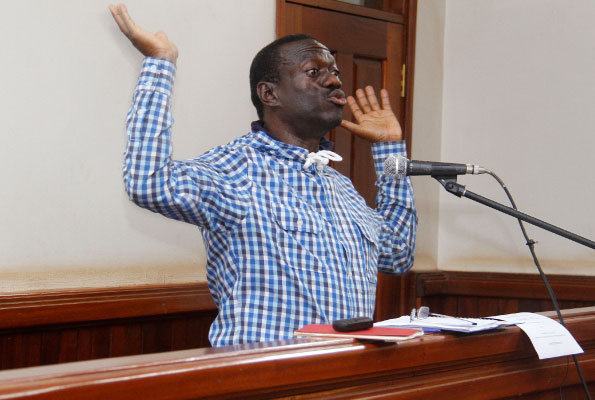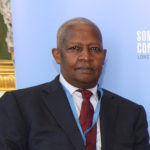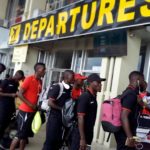Uganda must have a UK-style referendum on its membership of the regional integration bloc EAC, the political party which gave President Yoweri Museveni a bloody nose in this year’s general elections insists.
The East African Community, comprising six countries of Burundi, Kenya, Rwanda, Tanzania, South Sudan and Uganda, agreed to an expanded free trade area including the member states of all.
And yet the Forum for Democratic Change (FDC) says ruling National Resistance Movement (NRM) members of the East African Legislative Assembly (EALA) are plotting to adjust the rules of procedure to prolong the term limits.
Speaking at their weekly press briefing, FDC party leaders shared their envy of United Kingdom which last week voted out of the European Union to defend the country’s interests, and confirmed they would be pushing for a similar move in Uganda.
“As a party we are concerned that the character of dismantling the Constitution has become the character of the NRM. The matter we should be looking at is now leaving the EAC; we need to discuss whether Ugandans are actually benefiting from EAC because no one knows how many Ugandans identify with anything about the Community and have ever appreciated its relevance.” FDC’s Deputy Secretary General for Harold Kaija said on Monday.
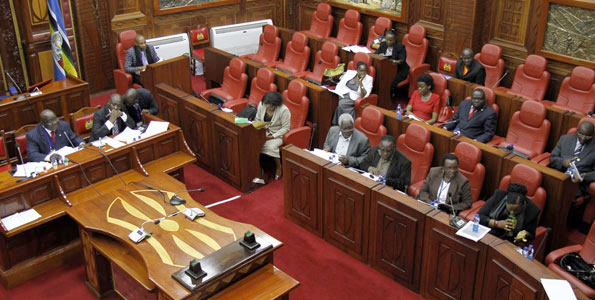
FDC maintains that Uganda initially rushed into the East African federation in the early 1960s and failed.
“A referendum is the only way Ugandans can truly express if they want to stay in the EAC, if they want to stay in the unfair trade bloc dominated by Kenyans.”
“Ugandans are not looked at as people who have a stake in deciding their destiny; which shouldn’t be the case. For this we are therefore calling for a referendum. They should be given a voice. They must be asked what they want.If they want to these EALA members to cling longer onto their seats.”
All the current six NRM EALA members are serving their second and last term: Dorah Byamukama, Nusura Tiperu, Dan Kidega, Mike Sebalu, Margaret Nantongo Zziwa and Bernard Mulengani. This means all six NRM slots are up for grabs. And already, several hopefuls have come out to state their intentions.
Old troubles
NRM in 2012 forced Parliament to charge the criteria for selection of EALA representatives, they resolved that members must be based on numerical strength thus leaving the five opposition parties with only three seats.
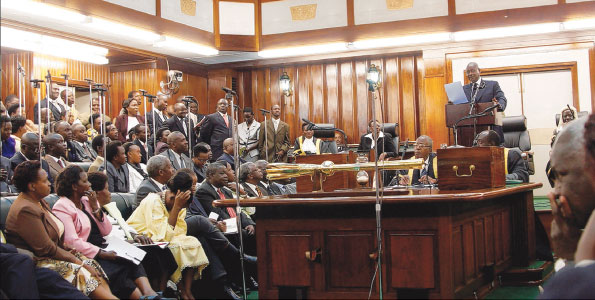
The regulations provided that the election of members to EALA shall take into consideration the various political parties and organizations represented in Parliament, shade of opinion, gender and other special interest groups.
Elections of Uganda’s representatives had stalled following an order by the East African Court of Justice to the Uganda Parliament to amend its rules to conform to article 50 of the treaty establishing the East African Community.
Members of the Opposition distanced themselves from the decisions made by the house and stormed out of the chamber protesting the failure to adopt proposals made by then Leader of the Opposition Mafabi.
The LoP had indicated they are to petition the East African Court of Justice to reign in Parliament of Uganda to ensure its rules conform to the EAC treaty.
The pace of implementation varying from country to country is slow amongst all; at least not fast enough, according to Kaija. He cites the removal of non-tariff barriers which has taken long to be fully implemented due to unawareness.
Besigye battle
FDC’s frustrations could also be aligned to the fact that their kingpin Dr Besigye, who was the runner up in the February 18 presidential elections, is on remand at Luzira prison on separate charges of treason.
Prosecution claims Dr Besigye and others at large between February 20 and May 11 this year in diverse places in Uganda formed an intention to compel by force or constrain the government of Uganda as by law established to change its measures or counsels as to the lawfully established methods of acceding to the office of president.
Frustrations
Uganda’s opposition insists they don’t know how many Ugandans expected that the EA community would lead to the abolition of national borders, creation of one nation and people would settle anywhere, abandonment of Uganda’s seat at the United Nations and African Union etc; surrender of foreign affairs responsibility; abandonment of all languages in favor of one East African common language.
They say Ugandans were under the impression that they were by and large following the European Union model of building from the bottom, sector by sector and ending up with a political union or federation. European countries would form the United States of Europe similar to the United States of America with state and federal structures. Ugandans thought East Africa would follow the same model.
More importantly, in Uganda, there has been a tendency to view EAC integration in isolation, with no link whatsoever to the country’s development agenda. The sector plans and budgets of most ministries, departments and agencies (MDAs) have not mainstreamed the EAC agenda. Their strategic plans and budgets framework papers do not refer to EAC integration and do not reflect EAC matters, even where decisions have been reached at the EAC council levels.




